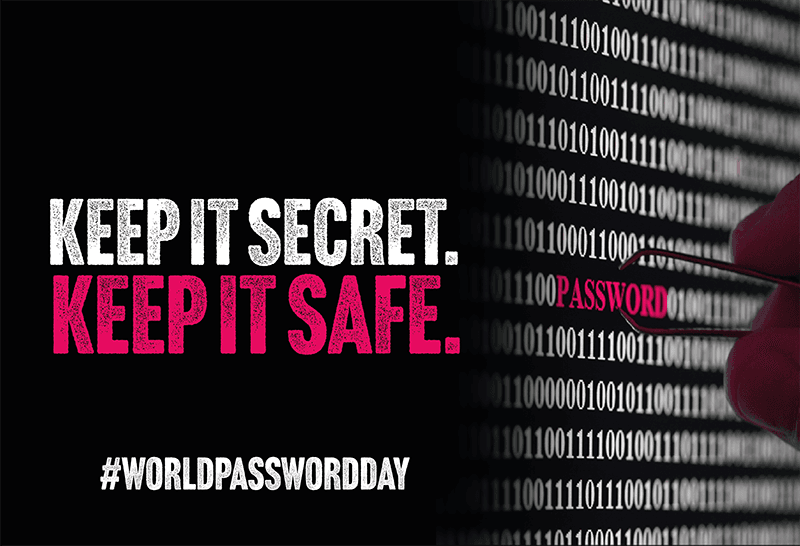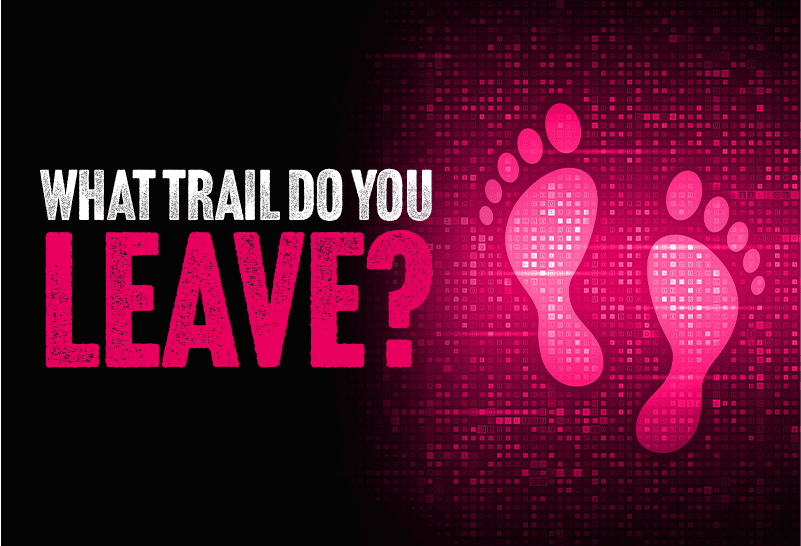- Blog
- Privacy
Make a data resolution
Every January, millions of people use the turn of the year to make resolutions for everything from healthier lifestyles and weight loss, to improving work-life balance, to reading more books. All with good intentions. But an important one to consider this year is getting control of your personal data.By Rightly
4 min read

In the run up to Christmas, we often can be found online making those quick decisions on the perfect present for mum, your husband, your children. We work fast, making purchases and ensuring all those gifts get to us in time for the big day.
But we probably don't spend a lot of time thinking about where all the data we just provided ends up. If you think about it, you may have, in the blink of an eye, given someone you don’t know your credit card information, your name and address, mobile phone number, email address and even details of a safe place to leave a delivery. Passwords too, and there is a lot of evidence that people use the same password on multiple sites - a very dangerous game indeed.
Data breach
All that data sits in company databases and gets passed around inside and sometimes between companies. Imagine for a moment, a hacker breaks into a company database in a data breach and accesses all those files full of rich personal data. Hackers take that data and sometimes splice it together with other personal data stolen from other sources, or just scraped from the internet. They build a profile of you. And then they sell that data to scammers who use it to trick you, con you and generally do things to get access to your finances. And not just yours, but getting into friends and family too through accessing your social media profiles. Grim, huh?!
Who’s got your personal data?
It’s not just hackers breaking into company databases that’s the problem. There are legitimate companies, ‘data brokers’, out there whose job it is to build digital profiles of people by putting together a picture of their ‘digital footprint’.
What’s a digital footprint?
A digital footprint is the data that's left behind whenever we use a digital service, or someone posts information about us onto a digital forum, such as a social network.
Almost everyone has a digital footprint. Online activities like photo sharing, dating, banking, shopping, gaming, professional networking, and social networking all add to it. Other people can contribute to your digital footprint by posting photographs or information about you online, along with tags.
Then, completely legally, data brokers sell your personal data to literally thousands of companies who subsequently bombard us with marketing information, unwanted intrusions such as porn and making us targets of ‘phishing’ by scammers.
Make a resolution!
With so many people knowing so much more about all of us than at any other time in history, it’s time to make a resolution for yourself to get better control of your data, know who has it, and get it deleted from every company and data broker that doesn't need it.
You can’t delete your digital footprint completely - but there’s a lot you can do.
How can I get back control of my data?
Easy wins are good and when it comes to digital decluttering, deleting stuff we don’t need is a place to begin.
1. Delete or deactivate old service accounts
Over the years, many of us have created multiple email accounts. So how about getting rid of old accounts you don’t use any more? Go to the account settings and look for an option to either deactivate, remove, or close your account.
If you’ve forgotten your username or password, most large websites will have a process you can follow to retrieve your details.
2. Manage your Google settings
It’s hard to imagine life without Google search. But what can people find out about you? Take control of your Google search results so that, if you want to remain private, you can make sure that your security and privacy settings are up to date.
3. Remove yourself from data collection sites
You have a legal right to control who can process your data, and that includes controlling what legitimate data brokers can do with it. To help you do this, Rightly has a simple and free service, enabling you to ask data brokers what information they hold on you and then instruct them to stop processing it and get it deleted. Using it can help reduce the risk of data harm and exposure to scams, fraud, data breaches and phishing attacks.
4. Check to see whether your data has been breached
You can check whether your email address has been hacked, for free at haveibeenpwned.com, which checks your email against databases on the dark web. You can then change key information and passwords to prevent being hacked or scammed.
5. Opt out
You can opt out of marketing communications with any company you don’t want to hear from. Plus, remove yourself from as many databases as possible that store your contact details and personal information. For example, The Direct Marketing Association, the Telephone Preference Service, and the Mail Preference Services all allow you to opt out of communications and to remove yourself from their marketing databases.
Get it deleted
Under the General Data Protection Regulation (GDPR) you can remove your personal data from as many companies as you’d like, for free. This is far more effective than just unsubscribing from marketing communications from a company because even if you unsubscribe, your data continues to wash around the company’s servers so it’s still vulnerable to hackers.
The easiest way to find out who has your data and get it deleted is to use Rightly Protect, our quick, simple and free service to make data deletion requests to a whole range of companies in a single click.
Related Articles
- Blog
5 min read

Keep it secret. Keep it safe.
Many people, as many as 82%, reuse passwords on multiple sites. This creates a lot of vulnerabilities because if someone gets hold of one password, they could get access to all sorts of things from social media platforms to bank accounts. Take time to work out who has your password, minimise the risk and keep yourself protected.
- Blog
7 min read

Leaving a digital trail
Not all browsers are created equal when it comes to security of your personal data. Some of the most popular browsers in the world are being exposed for collecting and selling user data or lacking adequate security measures.